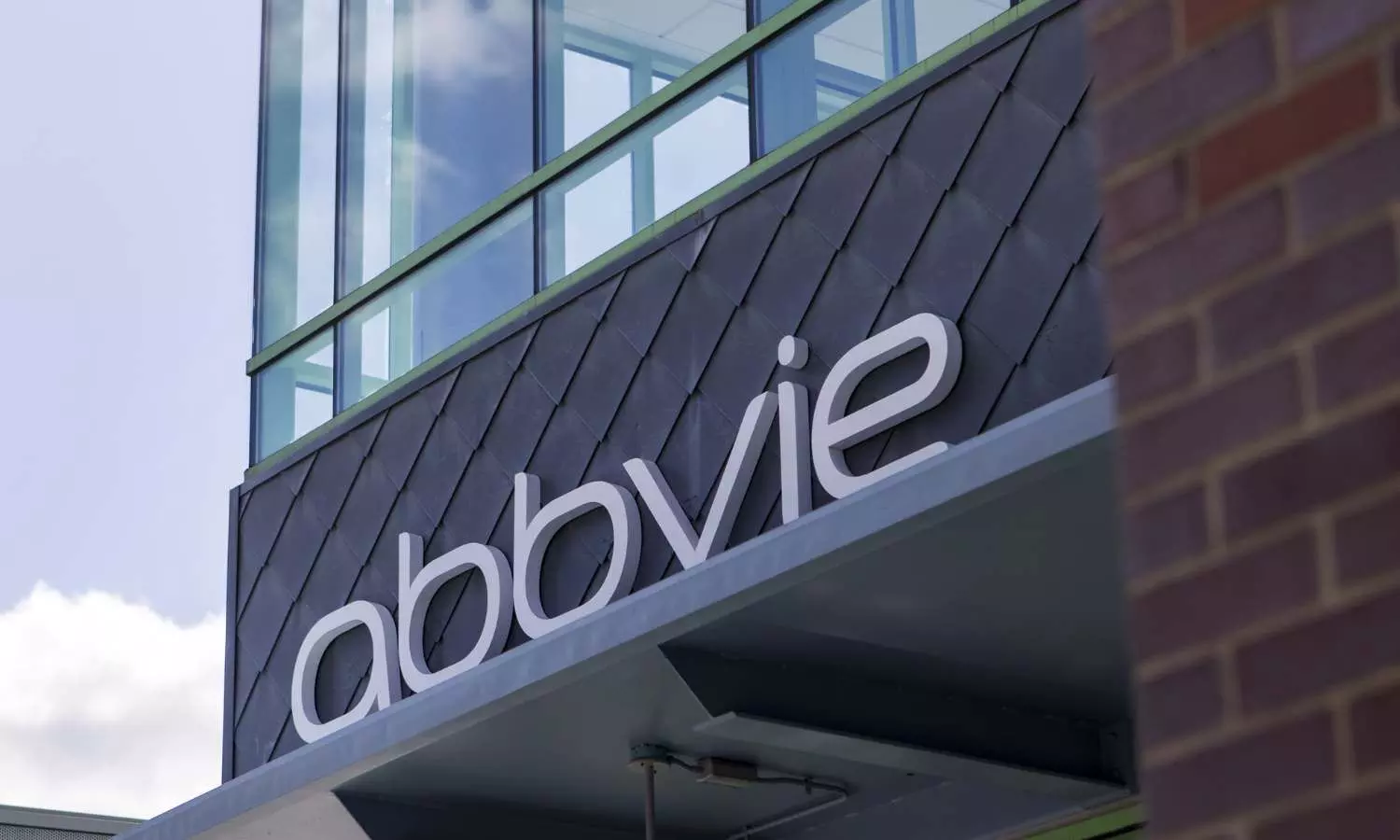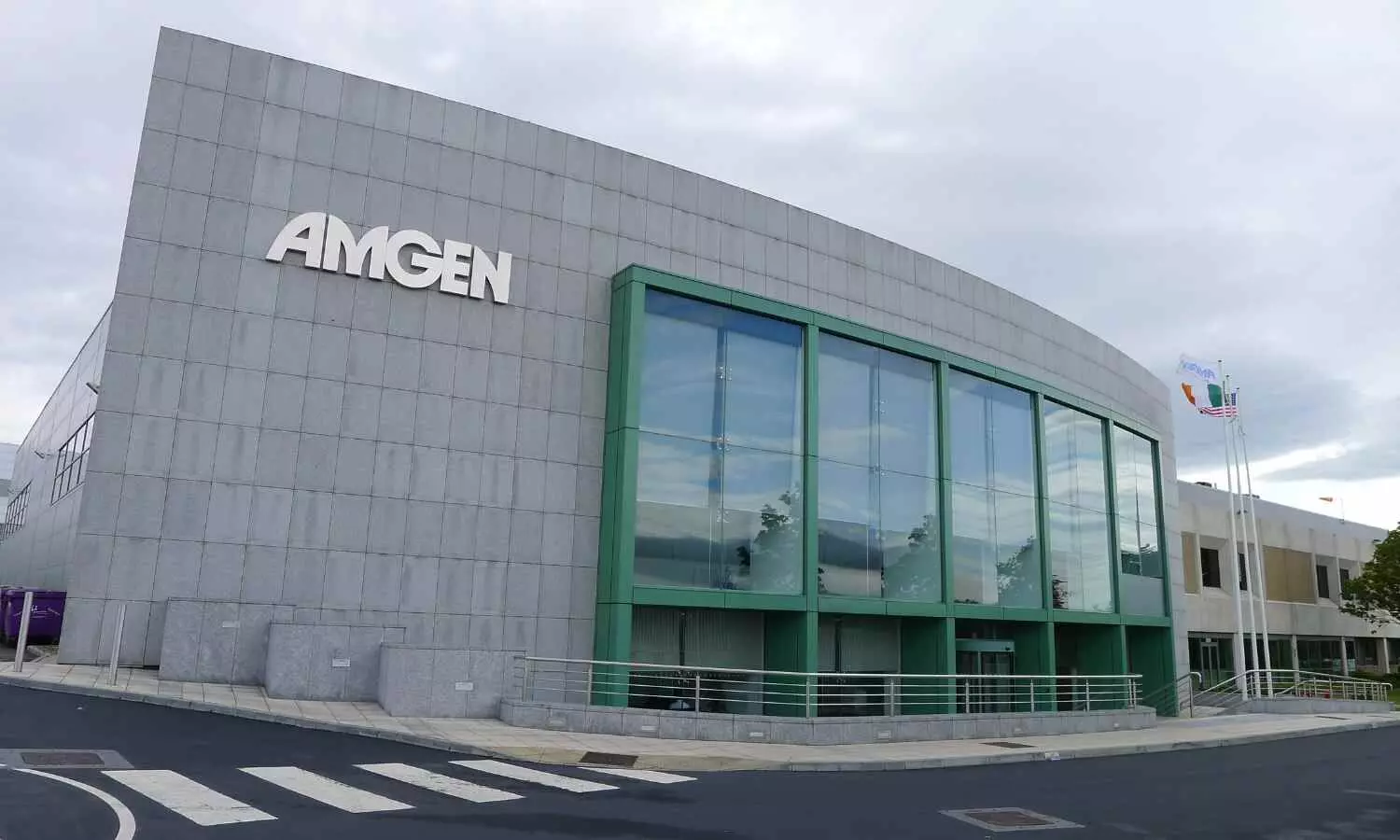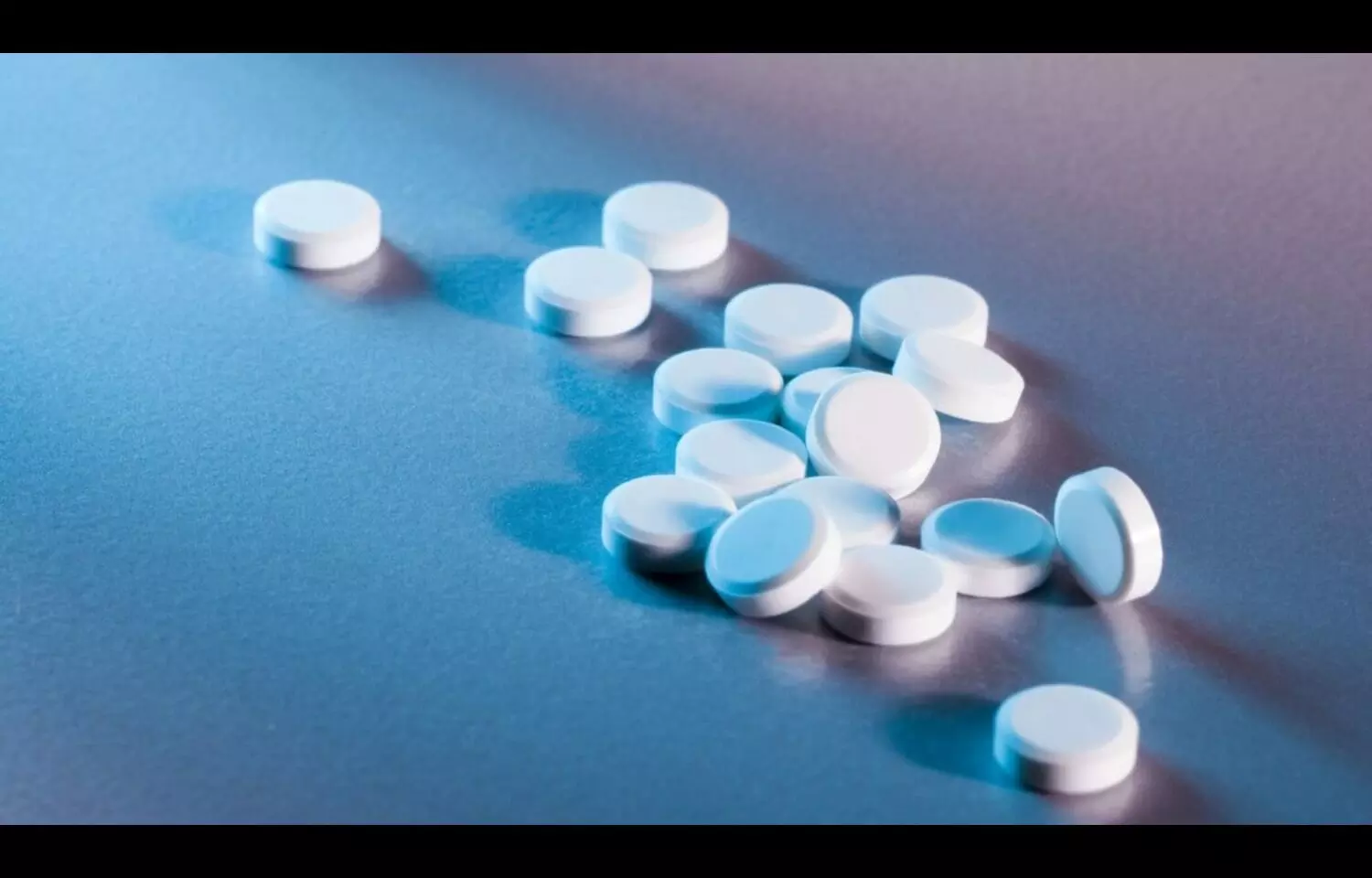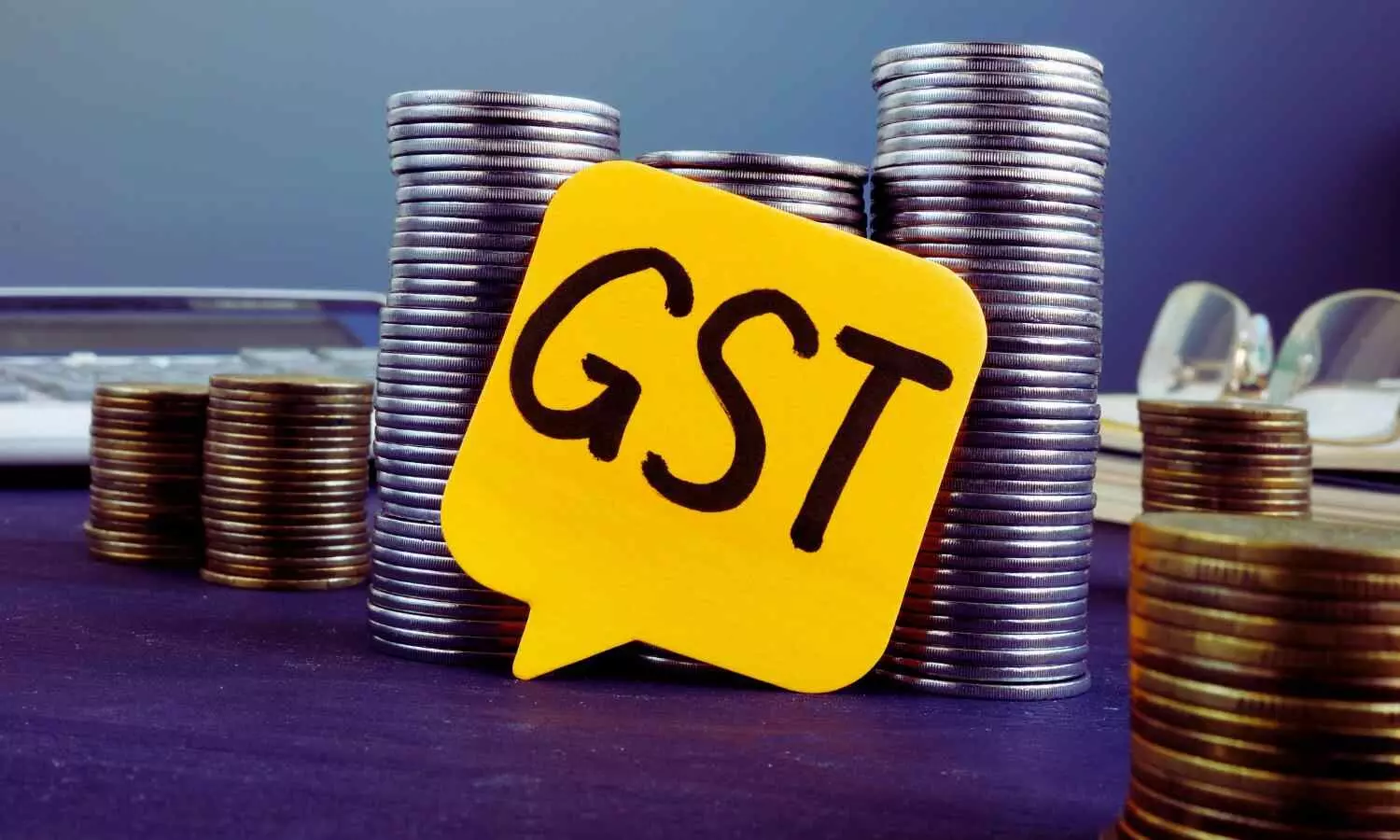Medical News, Health News Latest, Medical News Today - Medical Dialogues |
AbbVie concludes acquisition of Gilgamesh Pharma Bretisilocin
North Chicago: AbbVie has announced that it has completed its acquisition of Gilgamesh Pharmaceuticals' lead investigational candidate, bretisilocin.
North Chicago: AbbVie has announced that it has completed its acquisition of Gilgamesh Pharmaceuticals' lead investigational candidate, bretisilocin.
Bretisilocin is a novel, short-acting serotonin 5-HT2A receptor agonist and 5-HT releaser currently in Phase 2 clinical development for the treatment of patients with moderate-to-severe major depressive disorder (MDD). This next-generation 5-HT2A receptor agonist is designed to help address current development challenges observed with classic psychedelic compounds.
"Recent clinical results have demonstrated the potential of bretisilocin to treat patients living with MDD," said Daniel Mikol, M.D., Ph.D., vice president, neuroscience development, AbbVie. "With the acquisition now complete, we look forward to accelerating the development of this next-generation compound, reinforcing AbbVie's commitment to delivering innovative, science-driven treatment options for people living with serious mental health conditions."
5 days 17 hours ago
News,Industry,Pharma News,Latest Industry News
Medical News, Health News Latest, Medical News Today - Medical Dialogues |
Natco Gets SC Nod to Launch Generic Risdiplam at 80% Lower Price, Roche Appeal Dismissed
New Delhi: The Supreme Court has given the go-ahead to Natco Pharma for launching its generic version of Risdiplam in India, dismissing the appeal filed by Swiss drugmaker F. Hoffmann-La Roche that sought to restrain the Hyderabad-based company.
Risdiplam, an oral therapy prescribed for spinal muscular atrophy (SMA) in patients aged two months and above, is covered under Roche’s patent titled “compounds for treating spinal muscular atrophy.” The company claims a valid “species patent” for Risdiplam, the active pharmaceutical ingredient (API) in its branded product Evrysdi, which is marketed globally, including in India.
A Bench led by Justice P.S. Narasimha declined to interfere with last week’s Delhi High Court order, which had refused to impose any restraint on Natco. The apex court further directed that Roche’s pending plea before the High Court, seeking a permanent injunction against Natco over the Risdiplam formulation, be decided expeditiously. It also clarified that the single-judge proceedings shall continue uninfluenced by interim observations.
Earlier, in March, the High Court’s single-judge bench had rejected Roche’s interim injunction plea, observing that “a drug which is the only one available for treatment in India, for a rare disease, its availability to the public at large at very economical and competitive prices, is a material factor which a court will consider at the time of dealing with an application for interim injunction.”
Appearing for Roche, senior counsel N.K. Kaul argued before the Supreme Court that public interest considerations cannot override statutory patent rights merely because a rival product is cheaper. He maintained that Risdiplam, the API in Roche’s commercial product Evrysdi, was developed after years of research and was “neither disclosed nor rendered obvious by its earlier genus patent.” Kaul added that Roche holds valid patents in over sixty countries.
Roche currently imports and sells Evrysdi in India at a maximum retail price of around ₹6 lakh per 750 microgram/mL bottle.
Following the High Court ruling, Natco Pharma announced its decision to launch the product immediately at ₹15,900 per bottle, consistent with its submissions before the court that it would manufacture locally and offer the medicine at 80–90% lower price than Roche. The company also stated that it plans to extend discounts to eligible patients under a patient access programme.
Roche, in response, was quoted as saying by ET that since Evrysdi’s India launch in 2021—the first SMA therapy available in the country—it has been working with authorities to ensure equitable access through tailored pricing models. “In 2020, Roche initiated a Compassionate Use Program (CUP) for SMA patients under which 52 patients across India are benefitting free of cost,” the company said, adding that about 300 SMA patients have received Evrysdi since its introduction in India.
1 week 1 day ago
News,Industry,Pharma News,Latest Industry News
Medical News, Health News Latest, Medical News Today - Medical Dialogues |
Abbvie gets USFDA approval for updated indication statement for Rinvoq for Inflammatory Bowel Disease
North Chicago: AbbVie has received the U.S.
North Chicago: AbbVie has received the U.S. Food and Drug Administration (FDA) approval for a supplemental new drug application (sNDA) that updates the indication statement for RINVOQ (upadacitinib) for the treatment of adults with moderately to severely active ulcerative colitis (UC) and moderately to severely active Crohn's disease (CD).
Previously, RINVOQ was indicated for adults with moderately to severely active UC or CD who had an inadequate response or intolerance to one or more tumor necrosis factor (TNF) blockers. The updated indication statement also allows the use of RINVOQ for patients after they have received at least one approved systemic therapy in the event TNF blockers are clinically inadvisable.
"At AbbVie, we are committed to addressing the ongoing needs of patients living with inflammatory bowel disease," said Kori Wallace, M.D., Ph.D., vice president, global head of immunology clinical development, AbbVie. "Ulcerative colitis and Crohn's disease can impact every aspect of a patient's life. This label update gives healthcare providers the option to prescribe RINVOQ for patients with moderately to severely active inflammatory bowel disease after the use of one approved systemic therapy if TNF blockers are deemed clinically inadvisable by the prescribing physician."
Discovered and developed by AbbVie scientists, RINVOQ is a JAK inhibitor that is being studied in several immune-mediated inflammatory diseases. In human leukocyte cellular assays, RINVOQ inhibited cytokine-induced STAT phosphorylation mediated by JAK1 and JAK1/JAK3 more potently than JAK2/JAK2 mediated STAT phosphorylation. The relevance of inhibition of specific JAK enzymes to therapeutic effectiveness and safety is not currently known.
Upadacitinib (RINVOQ) is being studied in Phase 3 clinical trials for alopecia areata, hidradenitis suppurativa, Takayasu arteritis, systemic lupus erythematosus, and vitiligo.
Inflammatory bowel disease (IBD) is a group of diseases characterized by chronic inflammation of the gastrointestinal (GI) tract. Crohn's disease (CD) and ulcerative colitis (UC) are the most common forms of IBD. In both CD and UC, the immune system causes inflammation and damage to the mucosa – or lining – of the gut. Specifically, CD manifests as inflammation within the GI tract, most commonly in the area between the small intestine (ileum) and the colon, causing persistent diarrhea and abdominal pain. UC is a chronic, idiopathic, immune-mediated IBD of the large intestine that causes continuous mucosal inflammation extending, to a variable extent, from the rectum to the more proximal colon. The hallmark signs and symptoms of UC include rectal bleeding, abdominal pain, bloody diarrhea, tenesmus (a sense of pressure), urgency and fecal incontinence. CD and UC are progressive diseases, meaning they get worse over time and may lead to life-threatening complications or surgery. Because the signs and symptoms of CD and UC are unpredictable, they cause a significant burden on people living with the disease—not only physically, but also emotionally and economically.
1 week 5 days ago
News,Industry,Pharma News,Latest Industry News
Medical News, Health News Latest, Medical News Today - Medical Dialogues |
Zydus Lifesciences Dr Sharvil Patel takes over as IPA President
Mumbai: The Indian Pharmaceutical Alliance (IPA) has announced a leadership transition, with Dr Sharvil Patel, Managing Director of Zydus Lifesciences and former Vice President of IPA, assuming the role of President.
Mumbai: The Indian Pharmaceutical Alliance (IPA) has announced a leadership transition, with Dr Sharvil Patel, Managing Director of Zydus Lifesciences and former Vice President of IPA, assuming the role of President. He succeeds Samir Mehta, Chairman, Torrent Group, who successfully guided the association in advancing its mission.
The IPA leadership team also includes Glenn Saldanha, Chairman and Managing Director, Glenmark, who has been appointed as Vice President.
The leadership transition comes at a pivotal moment for the Indian pharmaceutical industry. Recent GST reforms have set the stage for a more affordable and patient-centric healthcare ecosystem. At the same time, India continues to strengthen its position as a hub for specialty medicines, biosimilars, and cutting-edge therapies. The new IPA leadership will build on these strengths to further advance India’s contribution to global healthcare innovation.
Samir Mehta, Chairman, Torrent Group and Immediate Past President, IPA, said, “It has been a privilege to serve as President of IPA and work alongside an exceptional team of leaders committed to advancing India’s pharmaceutical sector. Together, we strengthened the industry’s voice and reinforced its role in delivering affordable and innovative healthcare solutions globally. I am confident that under the new leadership team, IPA will continue to shape the future of global healthcare.”
Dr. Sharvil Patel, Managing Director, Zydus Lifesciences and President, IPA, said, “I am honored to take on this role and thank Samir Mehta for his outstanding stewardship in strengthening IPA’s voice and impact. Building on this foundation, breakthroughs at Zydus, such as India’s first NCE, our foray into MedTech and the global CDMO business, and our advances in vaccines and biologics, inspire my vision to build a strong, self-reliant India.”
Glenn Saldanha, Chairman and Managing Director, Glenmark, and Vice President, IPA, added: “I am delighted to join the IPA leadership team and contribute to shaping the industry’s next chapter. Our recent global partnership with AbbVie is a strong example of how Indian pharma is moving up the innovation curve, and together we will strengthen India’s leadership in delivering high-quality, affordable, and future-ready healthcare solutions.”
Sudarshan Jain, Secretary General, IPA, said: “The Indian Pharmaceutical Industry has been playing a vital role in advancing the industry’s vision for patient care and access. With the new leadership team, we will continue to build on recent reforms and breakthroughs with a focus on innovation, patient access, and the highest standards of quality in healthcare.”
3 weeks 2 days ago
News,Industry,Pharma News,Latest Industry News
Medical News, Health News Latest, Medical News Today - Medical Dialogues |
Amgen announces USD 650 million expansion of US manufacturing network
Thousand Oaks: Amgen has announced a USD 650 million expansion of its U.S. manufacturing network, creating hundreds of new jobs.
Thousand Oaks: Amgen has announced a USD 650 million expansion of its U.S. manufacturing network, creating hundreds of new jobs.
The planned investment will support increased drug production at the company's biologics manufacturing facility in Juncos and integrate advanced technologies throughout the operations process. It is expected to create nearly 750 jobs, including construction roles and new highly skilled manufacturing jobs.
"This expansion underscores Amgen's commitment to U.S. biomanufacturing and to strengthening the resilience of our global supply chain," said Robert A. Bradway, chairman and chief executive officer at Amgen. "By growing our capacity to deliver innovative medicines with cutting edge technology in our manufacturing plants, we will not only better serve patients but also create high-quality jobs that reinforce America's leadership in biotechnology."
"Amgen's multimillion-dollar expansion reflects a bond of mutual loyalty: Amgen's sustained investment and Puerto Rico's skilled, resilient workforce reinforcing each other over time," said Puerto Rico Governor Jenniffer González Colón. "This new expansion not only strengthens U.S. supply chain security through reshoring, it also opens new horizons for our people as we build an innovation ecosystem that positions Puerto Rico as the strongest biopharmaceutical hub in the United States."
"Puerto Rico boasts more than 60 years of expertise and excellence in the biopharmaceutical sector, supported by highly skilled talent and world-class infrastructure," said Sebastián Negrón Reichard, Puerto Rico Secretary of the Department of Economic Development and Commerce. "This investment by Amgen is a testament to how committed we are to advancing a competitive and innovative ecosystem that allows global companies to grow and prosper in Puerto Rico."
This announcement builds on Amgen's recent investments, including a $600 million science and innovation center in California and manufacturing expansions of $900 million in Ohio and $1 billion in North Carolina, respectively.
3 weeks 5 days ago
News,Industry,Pharma News,Latest Industry News
Medical News, Health News Latest, Medical News Today - Medical Dialogues |
AbbVie submits new drug application to USFDA for Tavapadon for Parkinsons disease
North Chicago: AbbVie has announced that it has submitted a New Drug Application (NDA) to the U.S. Food and Drug Administration (FDA) for tavapadon, a novel selective dopamine D1/D5 receptor partial agonist that was studied as a once daily oral treatment for Parkinson's disease.
The submission is based on results from the TEMPO clinical development program that evaluated the efficacy, safety and tolerability of tavapadon across a broad Parkinson's disease population. This includes two Phase 3 trials (TEMPO-1 and TEMPO-2) in early Parkinson's disease, and one Phase 3 trial (TEMPO-3) with tavapadon as adjunctive to levodopa in patients experiencing motor fluctuations. TEMPO-1 and TEMPO-2 demonstrated that patients experienced a statistically significant improvement from baseline in the Movement Disorder Society - Unified Parkinson's Disease Rating Scale (MDS-UPDRS) Parts II and III combined score at week 26. TEMPO-3 demonstrated that patients experienced more "on" time, referring to the period when symptoms were well controlled without dyskinesia or involuntary movements. The submission is also based on an interim data cut from TEMPO-4, an open-label extension (OLE) trial to assess the long-term clinical benefit of tavapadon.
"For many people living with Parkinson's disease, today's oral standard of care isn't effective enough to manage symptoms," said Roopal Thakkar, M.D., executive vice president, research and development, chief scientific officer, AbbVie. "We recognize the physical and mental impact that Parkinson's disease can cause and are committed to providing next-generation treatment options that will help individuals regain motor control and independence at all stages of this challenging disease."
More than 11 million people worldwide are living with Parkinson's disease, a progressive and chronic neurological disorder characterized by tremor, muscle rigidity, slowness of movement and difficulty with balance. The motor symptoms of Parkinson's disease begin when approximately 60-80 percent of the dopamine-producing cells in the brain are lost, and symptoms continue to worsen slowly over the course of time. As Parkinson's disease progresses, patients experience complications, including motor and non-motor fluctuations and dyskinesia. Patients report switching from an "on" state (when symptoms are generally well controlled) to an "off" state, during which symptoms such as tremor and stiffness may reappear and patients have more difficulty moving. Patients with advanced Parkinson's disease may also experience dyskinesia (involuntary movements) which can significantly hinder daily activities. While there is no known cure for the disease, there are treatments available to help reduce symptoms.
4 weeks 15 hours ago
News,Industry,Pharma News,Latest Industry News
Medical News, Health News Latest, Medical News Today - Medical Dialogues |
Online Pharmacy, 2 Indians Sanctioned by US for Fentanyl-Laced Pill Trafficking
New Delhi: The U.S. Department of the Treasury's Office of Foreign Assets Control (OFAC) has imposed sanctions on two Indian nationals and an India-based online pharmacy for trafficking counterfeit prescription pills laced with fentanyl and other illicit substances into the United States.
The individuals sanctioned are Sadiq Abbas Habib Sayyed and Khizar Mohammad Iqbal Shaikh. Sayyed and Shaikh were linked to narcotics traffickers in the Dominican Republic and the U.S., and they marketed and sold counterfeit pills as legitimate, discounted pharmaceuticals. However, upon inspection, these pills were found to contain fentanyl, fentanyl analogues, and methamphetamine.
Also Read: Severe Gum Disease Strongly Linked to Chronic Illnesses, Large U.S. Study Finds
Both individuals used encrypted messaging platforms to operate their illicit business. Shaikh is the owner of KS International Traders (also known as KS Pharmacy), an online pharmacy that continued operations even after Shaikh was indicted in September 2024 on narcotics-related charges by a federal grand jury in the Southern District of New York.
The U.S. government has identified the online pharmacy as a key player in the distribution network, facilitating the sale and shipment of these counterfeit pills across the country. According to LiveMint report, these actions are part of broader U.S. efforts to crack down on fentanyl trafficking and protect public health.
Fentanyl has been a significant driver of the synthetic opioid crisis in the U.S., leading to hundreds of thousands of deaths. Opioid overdose remains the leading cause of death among Americans aged 18 to 45.
Under the U.S.-India Drug Policy Framework, both countries continue to work together to combat the fatal impact of illegal drugs, aiming to end this threat by addressing drug trafficking, improving public health, and strengthening global supply chains.
Also Read: WHO congratulates India on successful assessment of Indian National Regulatory Authority
1 month 11 hours ago
News,Industry,Pharma News,Latest Industry News
Medical News, Health News Latest, Medical News Today - Medical Dialogues |
AbbVie to buy Gilgamesh Pharma Bretisilocin for Major Depressive Disorder
North Chicago: AbbVie and Gilgamesh Pharmaceuticals Inc.
North Chicago: AbbVie and Gilgamesh Pharmaceuticals Inc. have announced a definitive agreement under which AbbVie will acquire Gilgamesh's lead investigational candidate, currently in clinical development for the treatment of patients with moderate-to-severe major depressive disorder (MDD).
Psychedelic compounds, including 5-HT2A receptor agonists, have gained recognition as potential treatments for mental health disorders, such as MDD, because of their demonstrated rapid, robust and durable antidepressant effects. However, existing agents in this class are hampered by their long duration of psychoactive experience.
Bretisilocin, a 5-HT2A receptor agonist and 5-HT releaser, is a novel, next-generation psychedelic compound designed to address development challenges observed within this class of compounds. Bretisilocin has been shown to exert a shorter duration of psychoactive experience, while retaining an extended therapeutic benefit.
Positive topline results from a Phase 2a study of bretisilocin in MDD were recently announced, demonstrating a clinically impactful and statistically significant reduction in severity of depressive symptoms versus low dose active comparator, as measured by the Montgomery-Åsberg Depression Rating Scale (MADRS) total score. At Day 14, a single dose (10mg) of bretisilocin demonstrated robust antidepressant effect with a -21.6 point change from baseline in MADRS total score compared to a -12.1 point change from baseline for the low dose (1mg) active comparator (p = 0.003). Bretisilocin was well tolerated with no serious adverse events.
"The field of psychiatry represents one of the most challenging areas in medicine, with a significant need for innovative solutions," said Roopal Thakkar, M.D., executive vice president, research and development and chief scientific officer, AbbVie. "This acquisition underscores our commitment to broadening and enhancing psychiatric care by investing in novel treatment approaches with the potential to reach patients for whom other treatments have been ineffective. We look forward to advancing bretisilocin to late-stage clinical development."
"AbbVie's leadership in neuroscience and commitment to advancing innovative treatments make them the ideal partner to advance bretisilocin rapidly forward while enabling Gilgamesh to continue pursuing our broader mission of developing novel, transformative therapies for complex mental health and neurological conditions," said Jonathan Sporn, M.D., chief executive officer at Gilgamesh Pharmaceuticals.
Under the terms of the agreement, AbbVie will acquire Gilgamesh's bretisilocin program for up to $1.2 billion, inclusive of an upfront payment and development milestones. Additionally, as part of the transaction, Gilgamesh will spin off a new entity that will operate under the name Gilgamesh Pharma Inc. to hold its employees and other programs, including its oral NMDA receptor antagonist blixeprodil (GM-1020), cardio-safe ibogaine analog, M1/M4 agonist program and existing collaboration with AbbVie. The transaction is subject to customary closing conditions.
This transaction builds upon AbbVie and Gilgamesh's 2024 collaboration and option-to-license agreement to advance the development of next-generation therapies for the treatment of psychiatric disorders. This option-to-license remains in effect and will be transferred to Gilgamesh Pharma Inc. in connection with the spin-out.
For AbbVie, Covington & Burling LLP is acting as legal counsel. For Gilgamesh, Centerview Partners LLC is acting as exclusive financial advisor and Ropes & Gray LLP is acting as legal counsel.
1 month 4 weeks ago
News,Industry,Pharma News,Latest Industry News
Medical News, Health News Latest, Medical News Today - Medical Dialogues |
AbbVie completes acquisition of Capstan Therapeutics
North Chicago, Ill.: AbbVie has announced that it has completed its acquisition of Capstan Therapeutics. With the completion of the acquisition, Capstan is now a part of AbbVie.
North Chicago, Ill.: AbbVie has announced that it has completed its acquisition of Capstan Therapeutics. With the completion of the acquisition, Capstan is now a part of AbbVie.
Capstan's lead asset CPTX2309, currently in Phase 1 for the treatment of B cell-mediated autoimmune diseases, is a tLNP that generates CD19-specific, CD8+ in vivo CAR-T cells. The CAR-T cells are designed to achieve rapid and deep B cell depletion with the aim of achieving durable, drug-free remission. This can be accomplished without the need for lymphodepleting chemotherapy, while also avoiding other challenges associated with conventional ex vivo CAR-T therapies.
"With the acquisition now complete, we are excited to work together with the talented team at Capstan to advance our mission of transforming patient care," said Jonathon Sedgwick, Ph.D., senior vice president and global head of discovery research, AbbVie. "
"The addition of CPTX2309 and Capstan's tLNP platform strengthens our ability to deliver new treatments aimed at resetting the immune system and enables application of Capstan's proprietary technology more broadly for in vivo programming of cells," the release stated.
This move is the latest in a series of investments by AbbVie. In August, the company announced investment of USD 195 million in its North Chicago, Illinois manufacturing plant to expand domestic active pharmaceutical ingredient (API) production in the U.S.
Read also: AbbVie announces USD 195 million investment to expand API manufacturing in US
In July, AbbVie also entered talks to acquire privately-held mental health therapeutics company Gilgamesh Pharmaceuticals in a deal worth about USD 1 billion. The U.S. drugmaker has spent over $20 billion on acquisitions since 2023 as its flagship rheumatoid arthritis treatment, Humira, lost patent protection.
Read also: AbbVie Eyes USD 1 Billion Buyout of Mental Health Drugmaker Gilgamesh
2 months 3 days ago
News,Industry,Pharma News,Latest Industry News
Medical News, Health News Latest, Medical News Today - Medical Dialogues |
Medicines Are Lifelines, Not Luxury: AIOCD Seeks 5% GST on All Medicines, 0% on Life-Saving Drugs
New Delhi: In a major push for patient relief, the All India Organisation of Chemists and Druggists (AIOCD), representing 12.40 lakh chemists and distributors nationwide, has appealed to Finance Minister and GST Council Chairperson, Nirmala Sitharaman to reduce Goods and Services Tax (GST) on all medicines to 5% and exempt life-saving drugs from tax altogether.
The association stressed that medicines are “not luxury commodities but lifelines,” and lowering GST will directly ease the financial burden on millions of patients, particularly those without insurance. Medicines are “the lifelines of the sick, the solace of the suffering,” the All India Organisation of Chemists and Druggists (AIOCD) declared in a strong appeal to Union Finance Minister Nirmala Sitharaman and the GST Council, urging a sweeping reduction of GST on medicines.
Welcoming Prime Minister Narendra Modi’s Independence Day call for GST rationalization, AIOCD President J S Shinde and General Secretary Rajiv Singhal said that chemists, as last-mile healthcare providers serving 140 crore citizens, are witnessing firsthand how rising medicine costs affect patients.
AIOCD’s Key Demands:
1. Essential medicines regulated under DPCO must not face additional tax burdens.
2. All medicines, vitamins, probiotics, nutritional & food supplements, and baby food must fall under 5% GST.
3. Medicines for cancer, kidney, and cardiac diseases; chronic/rare disorders; and blood derivatives should be placed under 0% GST.
4. Ayurvedic medicines must not face higher taxation after the abolition of the 12% GST slab.
5. Preventive medicines and micronutrient supplements should remain affordable in line with “Prevention is better than cure.”
6. With the 12% GST slab being abolished, all medicines currently in that slab must shift to 0% or 5%.
7. Clear guidelines must be issued to apply revised GST rates on stock purchased under the higher slab.
The AIOCD also sent copies of its memorandum and a separate letter to Hon’ble Deputy Chief Minister of Bihar and President of Council of Ministers, Shri Samrat Choudhary Ji, seeking his support.
Further, the AIOCD expressed confidence that the upcoming GST Council meeting will take a “compassionate, historic decision” to prioritize patients’ welfare over fiscal hardship.
Key Points of AIOCD Memorandum
• AIOCD, with 12.40 lakh chemists and distributors across India, appeals for listing all medicinal preparations, including prophylactics, in the 5% GST slab.
• AIOCD appreciates the Hon’ble Prime Minister’s announcement on 15th August for the rationalization of GST to benefit consumers.
•The Central Government listed 2817 formulations in essential medicines under DPCO 2013. 27 therapeutic areas are covered. The objective is to make medicines affordable. Over 90% of price-controlled medicines are currently in the 12% slab, with provisions of 16% retail margins.
• Prescriptions are generated with medicines and allied essentials such as probiotics, vitamins, nutritional & food supplements, and baby food should be included in the 5% GST slab.
• Critical & life-saving medicines (cancer, kidney, heart, chronic disorders, rare diseases, blood derivatives, controlled drugs, and birth control medicines) should be exempted. (0% GST slab).
• Ayurvedic medicines: widely used as primary, and a large segment of qualified doctors prescribed these medicines; need to protect from higher taxation due to abolition of 12% GST slab.
• Preventive & prophylactic medicines: supplements essential for prevention; higher taxation will discourage early health protection. "Prevention is better than cure" doctrine has been accepted worldwide.
• With the merger of the 12% slab, all medicines should be shifted either to the 0% or 5% GST slab to reduce burden on patients.This will reduce cost burden on those paying out of pocket; secondly, insurance premiums may also go down.
• Transitional and existing stock clarification: Clear guidelines are required for GST credit adjustment on stock purchased under higher slab.
• Public Welfare Governance: Reducing GST on medicines will ease the burden on patients paying out-of-pocket, support un insured citizens, and reflect the government’s commitment to health, dignity & well-being.
In the letter to Union Finance Minister Nirmala Sitharaman and the GST Council, the AIOCD urges to consider the following points to support the demand:
1. Central Government by Statue Order: DPCO regulates prices of essential medicines. 27 therapeutic disease areas have been covered. The current list of essential medicines consists of 2817 formulations, as per the available record on the website. The government objective is 'ensure Affordability, Avallability with reasonable prices."
2. All medicines and allied healthcare essentials, including probiotics, vitamins, nutritional supplements, food supplements, and baby food, which are invariably prescribed by doctors as part of patient treatment, must be listed under the 5% GST slab.
3. For patients battling critical and life-threatening ailments—such as cancer, kidney and heart diseases, chronic disorders, and rare conditions requiring blood derivatives and drugs under the controlled category—medicines should be treated as sacred instruments of survival and thus placed under the 0% GST bracket, including current drugs used for birth control, etc. (GST exempted category)
4. Our own trusted Ayurvedic medicines are widely used by millions of patients; any sudden additional taxation due to the abolition of the 12% tax slab may hit hard this segment of household treatment.
5. Prophylactic/preventive medicine: The world has accepted the doctrine of "Prevention is better than cure." Early diagnosis of probable ailment due to micronutrient deficiency can be well treated with supplements. This segment is picking up pace in India. The government needs to realize and support the public to remain healthy and not wait to fall sick and start treatment. Any additional tax burden on this segment would be disastrous in the long run.
6. At present medicines and medicinal preparations are listed in 0%, 5%, 12%, and 18% categories. Most of them are in 12%. The proposed 12% slab is being merged, then it's obvious all those formulations need to be listed in either the 0% or 5% GST slab.
7. We also request suitable guidelines through notification to be issued for the application of the revised GST rate against the stock purchase with the higher GST slab.
2 months 4 days ago
News,Industry,Pharma News,Latest Industry News







